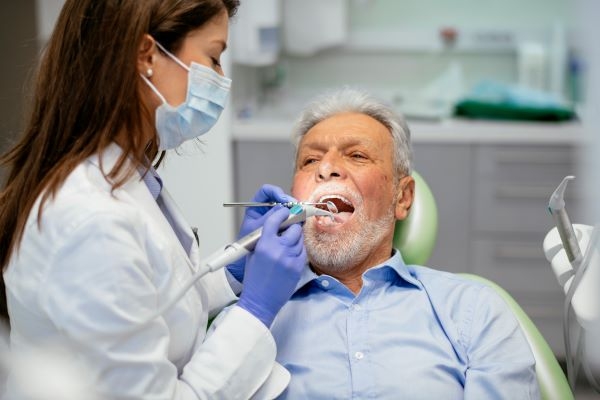-
With a new semester of university on the horizon, there's a good chance you'll be maximising your screen time while studying. While more often than not, time in front of the screen is unavoidable, it can be hard on your eyes, with a new health concern emerging as a result -- Computer Vision Syndrome (CPV).
What is Computer Vision Syndrome?
Also known as digital eye strain, CPV occurs when uninterrupted time is spent in front of a display screen, such as a computer, tablet or smartphone.
Symptoms of CPV include headaches, blurred vision, neck and shoulder pain and fatigue, and studies have shown the condition could affect up to 90% of people who spend three hours or more a day at a computer. While additional research is required into the condition and its effects, at this stage it is considered a temporary health concern and long term affects haven’t yet been identified.
What can you do to protect your eyes while studying?
While extended time in front of a screen is an avoidable reality for many, there are things you can do to protect your eyes and avoid to onset of CPV, such as:
- Adjust the lighting: By dimming your screen’s brightness and avoiding fluorescent lighting in the room, glare is minimised, making screen-time easier on your eyes.
- Blink regularly: Studies show we blink 66% less when in front of a monitor. Uninterrupted staring can cause dryness and irritation to the eyes, so make a conscious effort to blink regularly when in front of a display screen to ensure your eyes stay well lubricated. Interestingly, [research has found CVS can also lead to a reduction in productivity](http://www.pjo.com.pk/32/3/3. OA-Khola Noreen.htm).
- Apply the 20-20-20 rule: To avoid eyes from becoming strained, every twenty minutes, look at something 20 feet (6 meters) away for 20 seconds. Continue this throughout the day.
- Get regular check ups: See a GP or optometrist regularly as they can assess whether you will benefit from a prescription for glasses to wear in front of a screen.
How often should I get my eyes checked?
Regular eye checks are essential and optometrists recommend those over 16 have their eyes checked at least every two years. Medibank gives back 100% on optical items and has one of the largest health fund optical networks. For more information on optical cover, see here.
Protecting your eyes while studying

-
The best way to care for your teeth
Tips from a dentist on the best ways to care for your teeth.
-
Do you need an electric toothbrush?
Which toothbrush scrubs up best?
-
Dietitian, nutritionist or naturopath: What’s the difference?
Who should you see for professional dietary advice?
-
5 ways to eat healthy while travelling
Come home feeling refreshed, fit and energised.
-
How often should you get your teeth cleaned?
We spoke to Medibank Members’ Choice Advantage dentist Dr Jonathan Cichero to find out.
-
Daily habits for good oral health
Do you really need to floss? Is an electric toothbrush better than a manual one? Find out which habits to make (and which ones to break) for better oral health.
Subscribe to receive the best from Live Better every week. Healthy recipes, exercise tips and activities, offers and promotions – everything to help you eat, move and feel better.
By clicking sign up I understand and agree to Medibank's privacy policy





